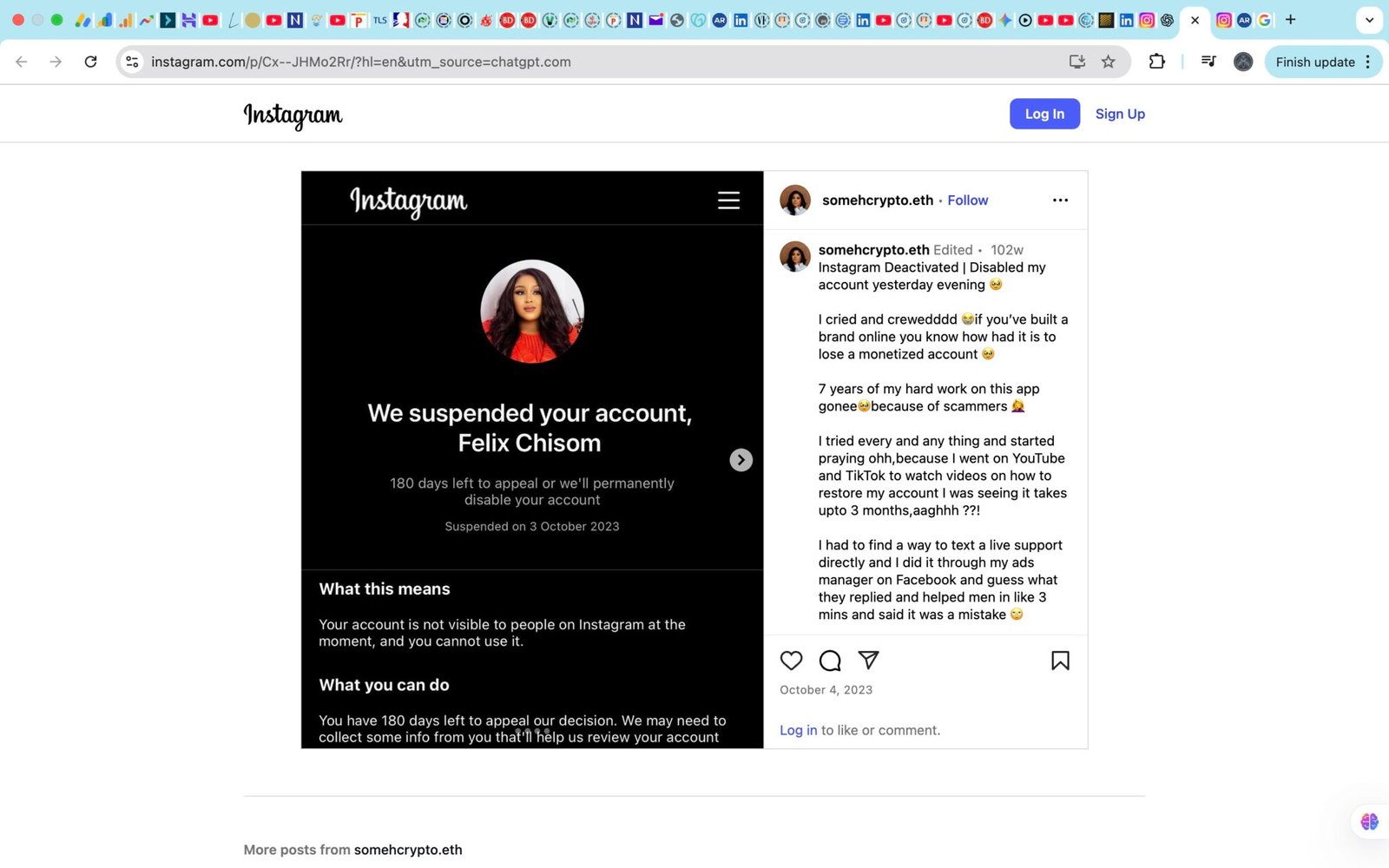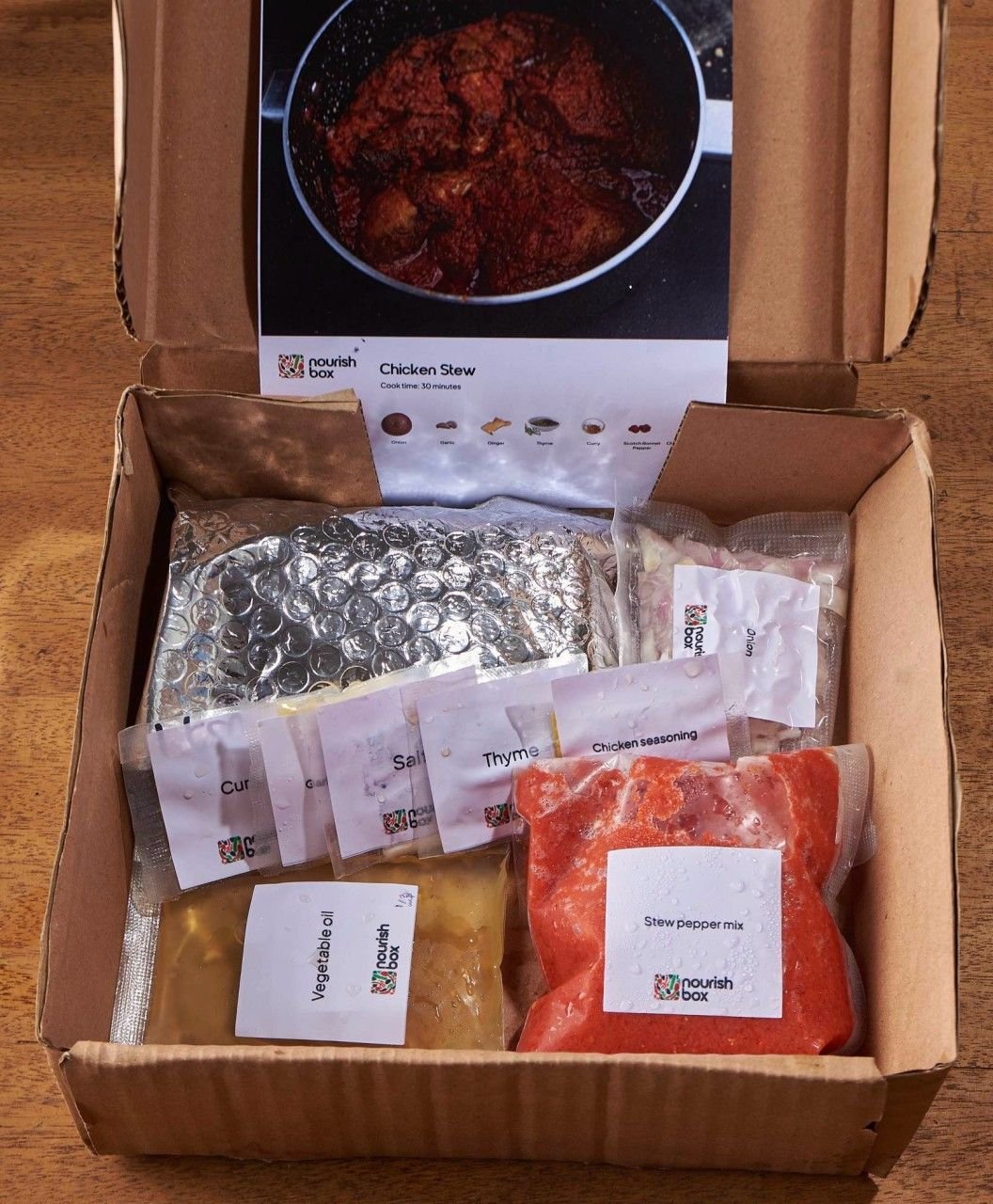Founder Gbemisola Alonge recounts losing her Instagram account three times in nine months — and what it means for small businesses in Nigeria’s e-commerce boom
When Nourish Box launched, its mission was simple but ambitious: to make healthy, affordable, ready-to-eat meals available to busy professionals and young families. With a subscription-based model and a menu designed to encourage better eating habits, the startup quickly attracted a loyal community. And like many Nigerian entrepreneurs, Founder Gbemisola Alonge turned to Instagram to reach customers.
But Nourish Box’s Instagram account was disabled three times in just nine months. Each time, the company lost not only its growing follower base but also the customer relationships and brand momentum that were driving sales.
“It has been incredibly painful and disruptive,” Alonge recounted. “We’ve lost our community, our customer connections, and countless hours invested in building those relationships. To make matters worse, I also lost access to my personal Facebook account. Clearly, we’re doing something wrong, but without guidance or support, it feels like we’re stuck in a cycle that could cripple everything we’ve built.”
Instagram as a Lifeline for Nigerian Entrepreneurs
For small businesses in Nigeria, Instagram is more than a social media platform; it is a primary marketplace. Entrepreneurs from food startups to fashion brands use it as a digital shop front, marketing channel, and customer service hub rolled into one.
Nigeria’s e-commerce market is valued at over $9.54 billion (Research and Markets) and continues to grow, driven by smartphone adoption and a young, internet-savvy population. Platforms like Instagram reduce entry barriers: with just a smartphone and a good idea, entrepreneurs can build businesses from their bedrooms or sitting rooms. No need for prohibitive cash outlay for renting shops.
But this reliance also creates fragility. When an account is suspended—often without clear explanation—the effects are devastating. Sales collapse, customer trust evaporates, and hard-earned brand equity disappears overnight.
Why Accounts Get Disabled — and How Meta Explains It
Meta, Instagram’s parent company, says accounts may be disabled for violations of Community Standards or Terms of Use. (Instagram on Disabling Accounts) These include inappropriate content, intellectual property infringement, or suspicious activity patterns. The company also stresses that entrepreneurs can appeal and that both automated systems and human moderators are involved in decisions.
Yet entrepreneurs like Alonge often face vague explanations and slow responses. False positives are a recurring problem, especially when automated moderation misreads legitimate business activity as suspicious. “We don’t know what exactly we’re doing wrong,” she said. “Without guidance, we’re just guessing—and that’s not sustainable for any business.”

Arbitrary or Accountable? How Meta Handles Complaints
Meta insists its systems are not arbitrary, but the experience of small business owners paints a different picture. Some accounts are reinstated after appeals, others are permanently lost. The process can take days or weeks, with little communication in between.
In Nourish Box’s case, each disablement felt like a reset button: “Every time we rebuild and start to gain traction, the account goes down again. Followers who were beginning to trust us disappear. Customers looking for us can’t find us. It’s exhausting.”
This lack of clarity leaves entrepreneurs in a dangerous limbo, where the rules are opaque and the cost of non-compliance—real or perceived—is existential.
If Gbemisola Alonge, founder of Nourish Box, could not get her Instagram account restored despite her experience and education, what chance do the thousands of small Nigerian traders on the platform really have? Alonge holds a master’s degree in Economics and has spent over eight years as a top-flight macroeconomic analyst in Lagos, yet she was forced to issue a desperate appeal on LinkedIn: “I urgently need to speak with someone at Meta… If you or someone in your network works at Meta and can provide clarity or support, please connect me. It would mean a lot, not just to me but to the team that’s poured their heart into making Nourish Box a reality.”
Her plea exposes the brutal reality: for small businesses that live and die by their Instagram presence, there is virtually no channel to reach Meta. Even life-or-death issues for their survival—like a disabled account—are met with silence.
The Bigger Lesson from Nourish Box
Nourish Box’s experience exposes a structural weakness in Nigeria’s e-commerce ecosystem: its heavy dependence on global platforms like Instagram, which function as private infrastructure yet make opaque, unilateral decisions that can cripple livelihoods.
For a food startup like Alonge’s, Instagram seemed like the quickest way to find customers and build trust. But the repeated suspensions show how quickly opportunity can turn into vulnerability. A single automated decision can erase months of community-building and sales.
At the same time, success stories from homegrown e-commerce platforms suggest there are alternatives. Chowdeck, Nigeria’s fast-growing food delivery app, has enabled vendors to scale in ways that social-media-only businesses often cannot. Amoke Oge, owned by Hajia Amoke Odukoya, recorded ₦2.3 billion in revenue after completing 500,000 deliveries. Korede Spaghetti, operating around the University of Lagos, crossed ₦1 billion in sales on the platform. These examples show that when businesses plug into structured ecosystems designed for commerce, they are better shielded from the fragility of relying solely on social media.
For small businesses like Nourish Box, the lesson is clear: Instagram can be a powerful growth tool, but it cannot be the only pillar. Diversifying into platforms with built-in support—whether e-commerce apps like Chowdeck, independent websites, or email lists—offers a stronger foundation for long-term survival.
Between Growth and Fragility
Despite these challenges, Nourish Box continues to deliver meals and grow its customer base. But Alonge’s story is a warning for Nigeria’s booming e-commerce scene. As more entrepreneurs rely on Instagram and similar platforms, the risk of arbitrary disruptions will only grow unless Meta improves transparency and appeals processes.
For now, the lesson is clear: social media is a powerful growth engine for small businesses—but one built on fragile ground.
As Alonge puts it: “We’ve poured our hearts into building Nourish Box. To see all that wiped out in seconds, without knowing why, is heartbreaking. But we’re determined to keep going.”

